
The concept of “food and medicine share the same source” emphasizes the importance of diet in maintaining health. Dietary therapy, also known as “food therapy,” refers to the practice of selecting and preparing food based on its properties according to Traditional Chinese Medicine (TCM) principles, aiming to nourish vital energy (qi), balance yin and yang, and prevent diseases. As the saying goes, “food supplements are better than medicinal supplements,” consuming the right foods daily can strengthen the body, allowing for dietary treatment of minor ailments and nourishment for more serious conditions. Health begins with what we eat; let’s enjoy healthy meals with our families to build a strong physique.
Next,
let’s follow Dr. Zheng Aihong, Deputy Director of the TCM Department,
to explore the miraculous effects of ginger,
a food and medicine combination in TCM culture.

Ginger is a staple ingredient in every household. The saying “eat radish in winter and ginger in summer” reflects the rich wisdom of TCM in dietary health. It suggests dietary principles based on seasonal changes and human physiological characteristics. Today, we will discuss how to consume ginger.
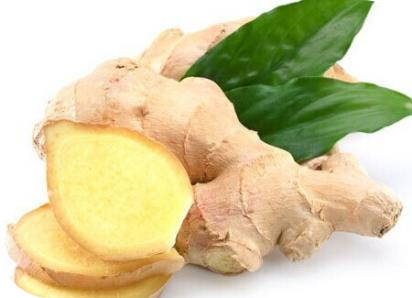

Classification of Medicinal Ginger

1. Fresh Ginger (Sheng Jiang): Fresh ginger is the raw form of ginger, characterized by its pungent taste and warm nature. It is effective in dispersing external cold and stopping vomiting, commonly used for wind-cold exterior syndrome and vomiting.
2. Dried Ginger (Gan Jiang): Pungent and hot, it enters the spleen, stomach, heart, and lung meridians. ① It can disperse cold from the spleen and stomach, serving as the main herb to warm the middle jiao. Symptoms include cold pain in the abdomen, vomiting, and diarrhea. Ancient formulas may use dried ginger alone, decocted or ground into powder and mixed with rice water. ② It can revive yang and open the meridians, treating yang deficiency syndrome. ③ It warms the lungs to dispel cold and transform phlegm, and can also warm the spleen and dry dampness to prevent phlegm production, treating cold phlegm obstructing the lungs. ④ It warms the meridians and stops bleeding, representing a key herb for treating deficiency-cold bleeding. ⑤ It dispels cold and dampness, treating kidney diseases caused by cold dampness, presenting as heaviness and cold pain in the lower back.
3. Processed Ginger (Pao Jiang): Processed ginger is treated with fire, reducing its pungency and imparting a bitter taste. It is particularly effective in warming the meridians and stopping bleeding, commonly used for deficiency-cold bleeding syndromes.

Ginger Health Knowledge

1. Ginger is a traditional remedy for nausea and vomiting, often referred to as the “sacred medicine for vomiting.” For nausea caused by gastrointestinal discomfort or oral odor, sucking on a slice of ginger in the morning can help. Folk remedies suggest eating fresh ginger to prevent motion sickness or applying it to the Neiguan (内关) acupoint, which has shown significant effects.
2. It stimulates appetite and strengthens the spleen. In hot summer months or due to certain illnesses, saliva and gastric juice secretion may decrease, affecting appetite. Eating a few slices of ginger before meals can stimulate the secretion of saliva, gastric juice, and digestive fluids, enhancing gastrointestinal motility and appetite.
3. It cools and refreshes, helping to relieve heat and promote sweating. For patients experiencing symptoms of heat such as dizziness, palpitations, and nausea, drinking ginger soup can be beneficial. The traditional Chinese medicine for heat prevention, Ren Dan, contains ginger as an ingredient, which helps to strengthen the stomach and refresh the mind.
4. In addition to cooling and refreshing, ginger also dispels cold pathogens. For colds, headaches, and abdominal pain caused by exposure to cold, drinking ginger soup can increase blood circulation, warming the body and helping to expel internal wind-cold.
5. Ginger has antibacterial properties. When consuming contaminated food leading to acute gastroenteritis, eating ginger can help prevent and treat the condition. Ginger extract has shown significant inhibition of skin fungi and can treat various boils and sores. Additionally, ginger water can be used as a mouthwash to treat bad breath and periodontal disease.
6. The feet are our second heart. Various organs in the body correspond to acupoints on the feet. Soaking the feet can improve peripheral circulation, and adding ginger to the foot soak can quickly dispel cold and prevent flu.
7. Regular consumption of ginger can have anti-aging effects. The gingerol in ginger produces an antioxidant enzyme that is highly effective against free radicals, even more so than vitamin E.
8. Other benefits include treating diarrhea, morning sickness, infant vomiting, dysmenorrhea, and joint pain. Besides consumption and foot soaks, ginger can also be applied externally to acupoints such as Shenque (神阙) and Neiguan (内关).
9. Due to ginger’s warm nature, those with internal heat should use it cautiously. Even healthy individuals should consume it in moderation to avoid excessive liver fire. For long-term consumption as a health method, it is advisable to understand one’s constitution and pair it with other yin-nourishing and fire-reducing foods, such as honey, chrysanthemum, and hawthorn.
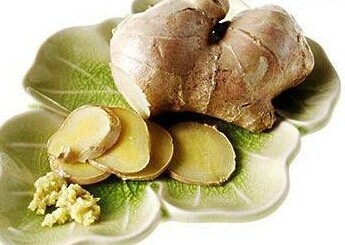

Introducing Several Ginger Teas

1. Ginger and Jujube Soup
Preparation Method: Ginger, red dates, and an appropriate amount of water. Place all ingredients in a health pot and boil for 30 minutes, then drink while hot. You can also add some brown sugar for taste. It is best consumed on an empty stomach in the morning and at noon; avoid drinking after 3 PM.
Effects: ① It dispels external cold and also tonifies the middle qi, strengthens the spleen, and warms the stomach. If you often consume cold drinks and fruits, leading to weak stomach yang, ginger and jujube soup is the most affordable, accessible, convenient, and effective supplement. ② Ginger and jujube tea is also excellent for treating dysmenorrhea, especially suitable for those with cold pain in the lower abdomen during menstruation.
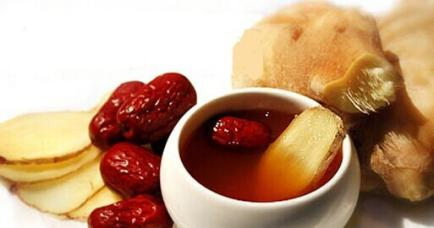
2. Ginger and Honey Pomelo
Preparation Method: Slice ginger thinly, peel and juice the pomelo. Place the ginger slices and pomelo juice in a pot, add an appropriate amount of water, and simmer on low heat. Once the liquid reduces, add honey to taste. Cool before enjoying.
Effects: It can clear heat, detoxify, nourish the stomach, and calm the mind.

3. Ginger Honey Water
Preparation Method: Slice ginger and blanch it in boiling water. Remove the ginger slices and mix with an appropriate amount of honey. Once at a suitable temperature, it can be consumed.
Effects: It can enhance immunity and relieve cough.
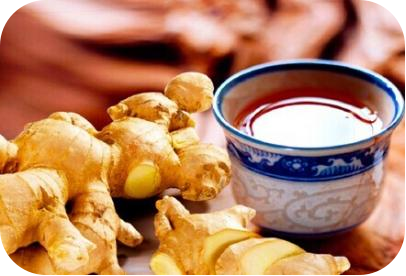
4. Ginger and Brown Sugar Tea
Preparation Method: Slice ginger and boil it with an appropriate amount of water. Once the water turns amber, add brown sugar and stir well. Cool before drinking.
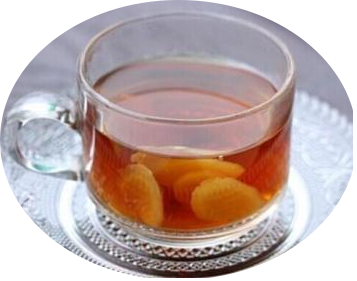
5. Ginger and Apple Juice
Preparation Method: Slice ginger and wash and cut the apple into pieces. Place the ginger slices and apple pieces in a juicer. Filter the juice before drinking.
Effects: It can detoxify, aid digestion, and replenish vitamin C.
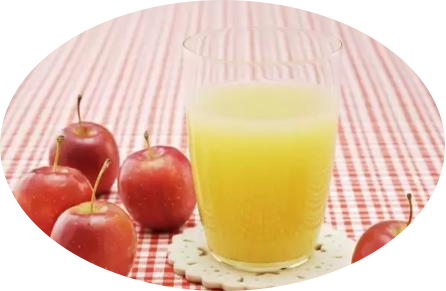
Expert Introduction


Dr. Zheng Aihong Deputy Director of the TCM Department, Associate Chief Physician
Specializes in the integrated treatment of common internal diseases and chronic conditions using both TCM and Western medicine. Treats common chronic diseases such as menopause syndrome, dizziness, headaches, depression, insomnia, and constipation with classical and contemporary formulas. Focuses on TCM constitution identification for disease prevention and treatment, as well as the regulation of sub-health states.


Source: TCM Department Dr. Zheng Aihong
Editor: Wu Tingting
Initial Review: Ding Jianfeng
Final Review: Wang Peng

Saving Lives, Caring for Health
Patients First, Honest Service

China Medical University Tacheng Hospital
WeChat ID: tcdqrmyy
Address: No. 22 Wenhua Road, Tacheng City, Xinjiang

